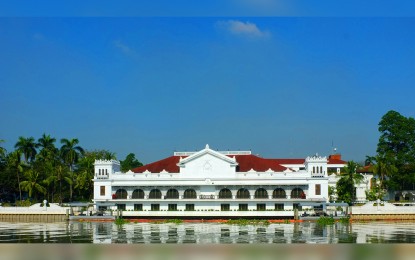
MANILA – Malacañang on Thursday distanced itself from the House of Representatives’ proposed amendments to the restrictive economic provisions in the 1987 Constitution.
In an online press briefing, Presidential Spokesperson Harry Roque said the Palace respects the Congress’ prerogative to introduce reforms to the 1987 Constitution’s economic provisions to entice more foreign investors.
“Hinahayaan po natin iyan dahil iyan po ay initiative talaga ng Kongreso. Ang nangyayari po ay amendment pursuant to constituent assembly (Let them be because that is the Congress’ initiative. What is happening is Congress is introducing amendment pursuant to constituent assembly),” Roque said.
The House of Representatives on Wednesday night passed on third Resolution of Both Houses No. 2 which proposes economic amendments to the Charter to open the Philippine economy to direct investments that could help the country recover from the adverse impacts of the coronavirus disease 2019 (Covid-19).
The proposal, which is principally authored by House Speaker Lord Allan Velasco, seeks to insert the phrase “unless otherwise provided by law” to several sections of the Constitution that restrict foreign ownership of public utilities, educational institutions, media, and advertising companies.
It also aims to revise certain economic provisions of the Charter, particularly Articles XII (National Economy and Patrimony), XIV (Education, Science, Technology, Arts, Culture, and Sports), and XVI (General Provisions).
The Philippines has the highest restrictiveness score of any country in the Association of Southeast Asian Nations, according to the 2019 Organization for Economic Cooperation and Development’s Foreign Direct Investment restrictiveness index.
AKO BICOL party-list Rep. Alfredo Garbin Jr., chairperson of the House Committee on Constitutional Amendments, said the economic Charter reforms would eliminate the “overly protective” provisions.
The provisions that will be removed, Garbin said, include foreign ownership limitations in business enterprises, including public utilities to attract more foreign investments and adopt policies to make the country’s economy more competitive.
Albay Rep. Joey Salceda, a principal sponsor of the resolution, also cited three investment barriers that are present in the country because of the economic restrictions in the 1987 Constitution.
The barriers, Salceda said, are the “foreign ownership restrictions in the law, stipulations on management such as regulations that nationals or residents must form a majority of the board of directors, and nationality-based restrictions on operations.” (PNA)
